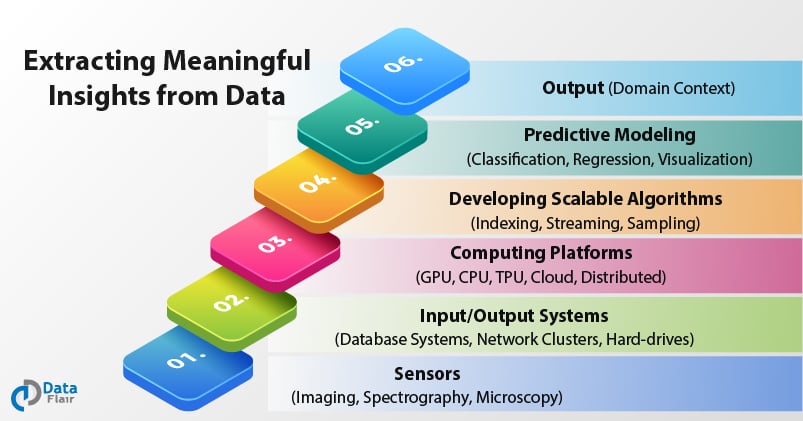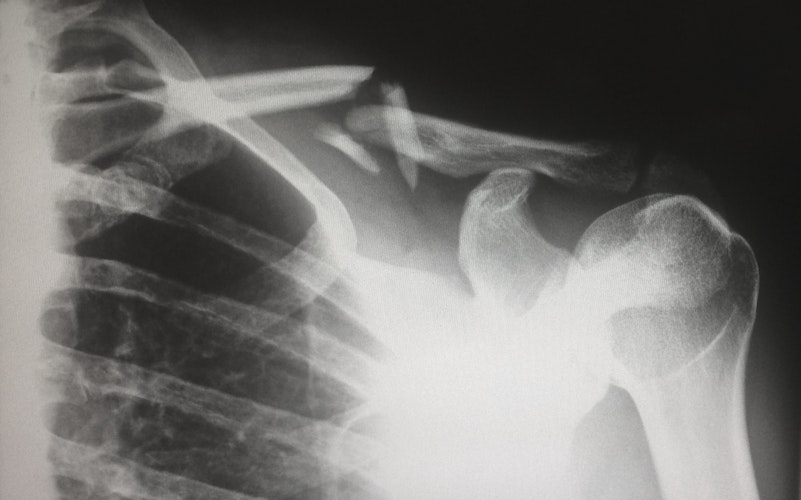Data Science in Healthcare – 7 Applications No one will Tell You
Free Machine Learning courses with 130+ real-time projects Start Now!!
Data Science is rapidly growing to occupy all the industries of the world today. In this topic, we will understand how data science is transforming the healthcare sector. We will understand various underlying concepts of data science, used in medicine and biotechnology.
Medicine and healthcare are two of the most important part of our human lives. Traditionally, medicine solely relied on the discretion advised by the doctors. For example, a doctor would have to suggest suitable treatments based on a patient’s symptoms.
However, this wasn’t always correct and was prone to human errors. However, with the advancements in computers and in particular, Data Science, it is now possible to obtain accurate diagnostic measures.
There are several fields in healthcare such as medical imaging, drug discovery, genetics, predictive diagnosis and several others that make use of data science. We will go through each field one by one, with examples.
Data Science in Healthcare
Let’ explore how data science is used in healthcare sectors –
1. Data Science for Medical Imaging
The primary and foremost use of data science in the health industry is through medical imaging. There are various imaging techniques like X-Ray, MRI and CT Scan. All these techniques visualize the inner parts of the human body.
Traditionally, doctors would manually inspect these images and find irregularities within them. However, it was often difficult to find microscopic deformities and as a result, doctors could not suggest a proper diagnosis.
With the advent of deep learning technologies in data science, it is now possible to find such microscopic deformities in the scanned images. Through image segmentation, it is possible to search for defects present in the scanned images.
Other than this, there are also other image processing techniques like image recognition using Support Vector Machines, image enhancement and reconstruction, edge detection etc.
There are several other methods that are applied to enhance the images and improve the accuracy of the outcome. Big Data platforms like Hadoop apply MapReduce to find parameters that can be used in various tasks.
For data science enthusiasts beginning with image analysis, there are several open datasets of brain imaging that you can utilize for gaining a practical experience –
2. Data Science for Genomics
Genomics is the study of sequencing and analysis of genomes. A genome consists of the DNA and all the genes of the organisms. Ever since the compilation of the Human Genome Project, the research has been advancing rapidly and has inculcated itself in the realms of big data and data science.
Before the availability of powerful computation, the organizations spent a lot of time and money on analyzing the sequence of genes. This was an expensive and tedious process.
However, with the advanced data science tools, it is now possible to analyze and derive insights from the human gene in a much shorter period of time and in a much lower cost.
The goal of research scientists is to analyze the genomic strands and search for irregularities and defects in it. Then, they find connections between genetics and health of the person.
In general, researchers use data science to analyze the genetic sequences and try to find a correlation between the parameters contained within it and the disease.
Furthermore, research in genomics also involves finding the right drug which provides a deeper insight in the way a drug reacts to a particular genetic issue. There is in fact, a recent discipline that combines data science and genetics called Bioinformatics.
There are several data science tools like MapReduce, SQL, Galaxy, Bioconductor etc. MapReduce processes the genetic data and reduces the time it takes to process genetic sequences.
SQL is a relational database language that we use to perform querying and retrieve data from genomic databases. Galaxy is an open source, GUI based biomedical research application that allows you to perform various operations on genomes.
And finally, Bioconductor is an open-source software developed for the analysis and comprehension of genomic data.
The research that has been conducted in the field of computational biology and bioinformatics, there is still a lot of ocean that still remains uncharted. There are advanced fields that are still being researched such as genetic risk prediction, gene expression prediction etc.
3. Drug Discovery with Data Science
Drug Discovery is a highly complicated discipline. Pharmaceutical industries are heavily relying on data science to solve their problems and create better drugs for the people. Drug Discovery is a time-consuming process that also involves heavy financial expenditure and heavy testing.
Data Science and Machine Learning algorithms are revolutionizing this process and providing extensive insights into optimizing and increasing the success rate of predictions.
Pharmaceutical companies use the insights from the patient information such as mutation profiles and patient metadata. This information helps the researchers to develop models and find statistical relationships between the attributes.
This way, companies can design drugs that address the key mutations in the genetic sequences. Also, deep learning algorithms can find the probability of the development of disease in the human system.
The data science algorithms can also help to simulate how the drugs will act in the human body that takes away the long laboratory experimentations.
With the advancements in the data-science facilitated drug discovery, it is now possible to improve the collection of historical data to assist in the drug development process. With a combination of genetics and drug-protein binding databases, it is possible to develop new innovations in this field.
Furthermore, using data science, researchers can analyze and test the chemical compounds against a combination of different cells, genetic mutations etc. Usage of machine learning algorithms, researchers can develop models that compute the prediction from the given variables.
4. Predictive Analytics in Healthcare
Healthcare is an important domain for predictive analytics. It is one of the most popular topics in health analytics. A predictive model uses historical data, learns from it, finds patterns and generates accurate predictions from it.
It finds various correlations and association of symptoms, finds habits, diseases and then makes meaningful predictions.
Predictive Analytics is playing an important role in improving patient care, chronic disease management and increasing the efficiency of supply chains and pharmaceutical logistics.
Population health management is becoming an increasingly popular topic in predictive analytics. It is a data-driven approach focusing on prevention of diseases that are commonly prevalent in society.
With data science, hospitals can predict the deterioration in patient’s health and provide preventive measures and start an early treatment that will assist in reducing the risk of the further aggravation of patient health.
Furthermore, predictive analytics plays an important role in monitoring the logistic supply of hospitals and pharmaceutical departments.
5. Monitoring Patient Health
Data Science plays a vital role in IoT (Internet of Things). These IoT devices, that are present as wearable devices that track heartbeat, temperature and other medical parameters of the users. The data that is collected is analyzed with the help of data science.
With the help of analytical tools, doctors are able to keep track of patient’s circadian cycle, their blood pressure as well as their calorie intake.
Other than wearable monitoring sensors, doctor can monitor a patient’s health through home devices. For patients that are chronically ill, there are several systems that track patient’s movements, monitor their physical parameters and analyze the patterns that are present in the data.
It makes use of real-time analytics to predict if the patient will face any problem based on the present condition. Furthermore, it helps the doctors to take the necessary decisions to help the patients in distress.
6. Tracking & Preventing Diseases
Data Science plays a pivotal role in monitoring patient’s health and notifying necessary steps to be taken in order to prevent potential diseases from taking place. Data Scientists are using powerful predictive analytical tools to detect chronic diseases at an early level.
In many extreme cases, there are instances where due to negligibility, diseases are not caught at an early stage.
This proves to be highly detrimental to not only the patient’s health but also the economic costs. As the disease grows, the cost of curing it also increases. Therefore, data science plays a huge role in optimizing the economic spending on healthcare.
There are several instances where AI has played a huge role in detecting diseases at an early stage. Researchers at the University of Campinas in Brazil have developed an AI platform that can diagnose Zika virus using metabolic markers.
Several other companies like IQuity are using machine learning to detect autoimmune diseases.
Excited to know more about Artificial Intelligence? – Read Artificial Intelligence Tutorial
7. Providing Virtual Assistance
With the help of the disease predictive modeling, data scientists have developed a comprehensive virtual platform that provides assistance to the patients.
With the help of these platforms, a patient can enter his or her symptoms in the input and get insights about the various possible diseases based on the confidence rate.
Furthermore, patients who suffer from psychological problems like depression, anxiety and neurodegenerative diseases like Alzheimer’s can make use of virtual applications to help them in their daily tasks.
Some popular examples of virtual assistants are Ada – A startup based in Berlin that predicts diseases based on the user’s symptoms. And, Woebot – a chatbot developed at Stanford University that provides therapy treatments to patients who suffer from depression.
So, this was how data science is used in healthcare sectors.
Summary
In the end, we conclude that data science has many applications in healthcare. The medicine and healthcare industry has heavily utilized Data Science for the improving lifestyle of patients and predicting diseases at an early stage.
Furthermore, with advancements in medical image analysis, it is possible for the doctors to find out microscopic tumors that were otherwise hard to find. Therefore, data science has revolutionized healthcare and the medical industry in large ways.
Hope this article helped you to learn how healthcare data scientists are using data science. If there is anything you want to ask, comment below. We will definitely respond back.
You must check how data science is transforming the finance sector.
Did we exceed your expectations?
If Yes, share your valuable feedback on Google




What is the role of data science in aviation and what are its applications
Very useful, Thanks !
Very Informative article. This will help me in my research work.
Hello Ashutosh,
Glad that you liked our Data Science in Healthcare article. Refer our sidebar for more such informative articles.
I am a Biochemist in a hospital. My responsibility is maintain the laboratory quality management. How data science play role in my work?
I really liked the article and got to know a lot of stuff that I didn’t know. I am a fourth year medical student myself and I would be interested in knowing if after my MBBS I can pursue a career in data-science.
Insightful and informative. I learnt new things about Data Science applications in health care especially for Genomics. Thank you
Can a commerce student become healthcare data scientist
Informative and detailed article.
Thank you so much for collecting and putting info so beautifully.